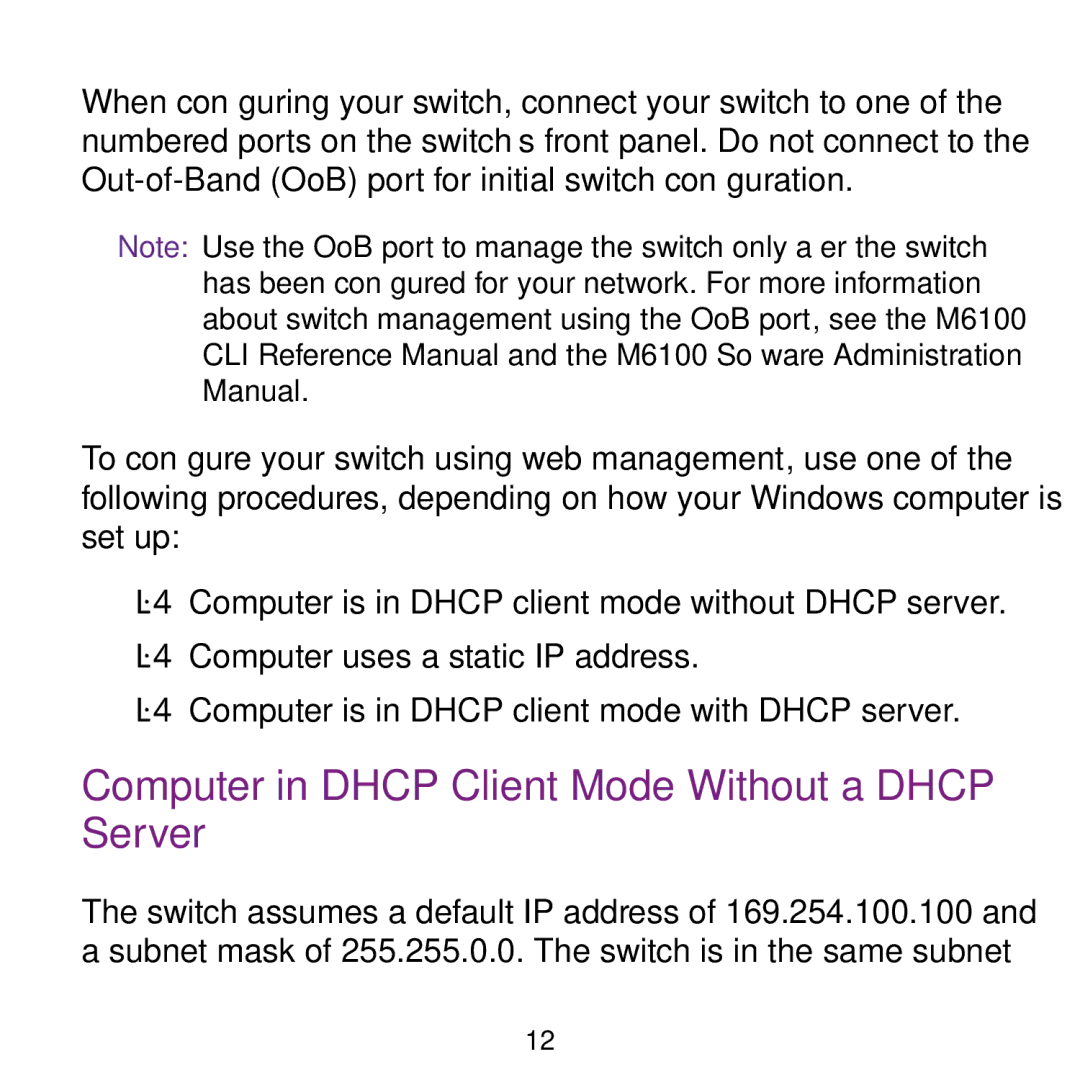XCM89UP, XCM89P, XCM8944, XCM8944F, XCM8924X specifications
NETGEAR’s XCM series of switches, including the XCM8948, XCM8924X, XCM8944F, XCM8944, and XCM89P, exemplify high-performance networking solutions tailored for demanding environments. Each model offers unique features that cater to diverse business requirements, ensuring reliability and efficiency in data handling.The NETGEAR XCM8948 is an advanced switch designed for medium to large enterprises. It supports 48 ports of 10G Ethernet connectivity, ensuring high bandwidth for large data transfers. It is equipped with 4 x 40G QSFP+ uplink ports, allowing for stacked or aggregated connections, which enhance scalability. With support for Layer 3 static routing, the XCM8948 streamlines network traffic management and optimizes performance.
The XCM8924X is a versatile model with 24 x 10G SFP+ ports, making it ideal for high-density environments. This switch supports advanced Layer 2 and Layer 3 features, such as VLANs and multicast, and is optimized for both data center and edge networking. The XCM8924X's compact design makes it suitable for space-constrained environments while providing robust performance.
In the XCM8944F, users can expect 48 x 10G Ethernet ports along with 4 x 100G QSFP28 uplink ports. This model stands out with its enhanced stacking capabilities and redundancy options. The built-in support for PoE (Power over Ethernet) makes it particularly advantageous for deploying network devices like IP cameras and wireless access points without the need for additional power sources.
The XCM8944 mirrors many features of the XCM8944F but is designed with a focus on flexibility and expandability. It includes advanced Layer 2 and Layer 3 capabilities, robust security features, and simplified management interfaces. Its modular design allows for easy upgrades to adapt to evolving networking needs.
Finally, the XCM89P is targeted at organizations looking for a cost-effective yet powerful switch. With a focus on prioritizing traffic and reducing latency, the XCM89P delivers excellent performance for applications requiring low lag, such as voice over IP and video conferencing. Its comprehensive management tools facilitate easy network monitoring and troubleshooting.
In summary, NETGEAR’s XCM series embodies state-of-the-art networking technology, each model tailored for specific requirements. With features like multiple 10G ports, advanced management capabilities, and scalability, these switches are integral for organizations aiming for superior network performance and reliability.
